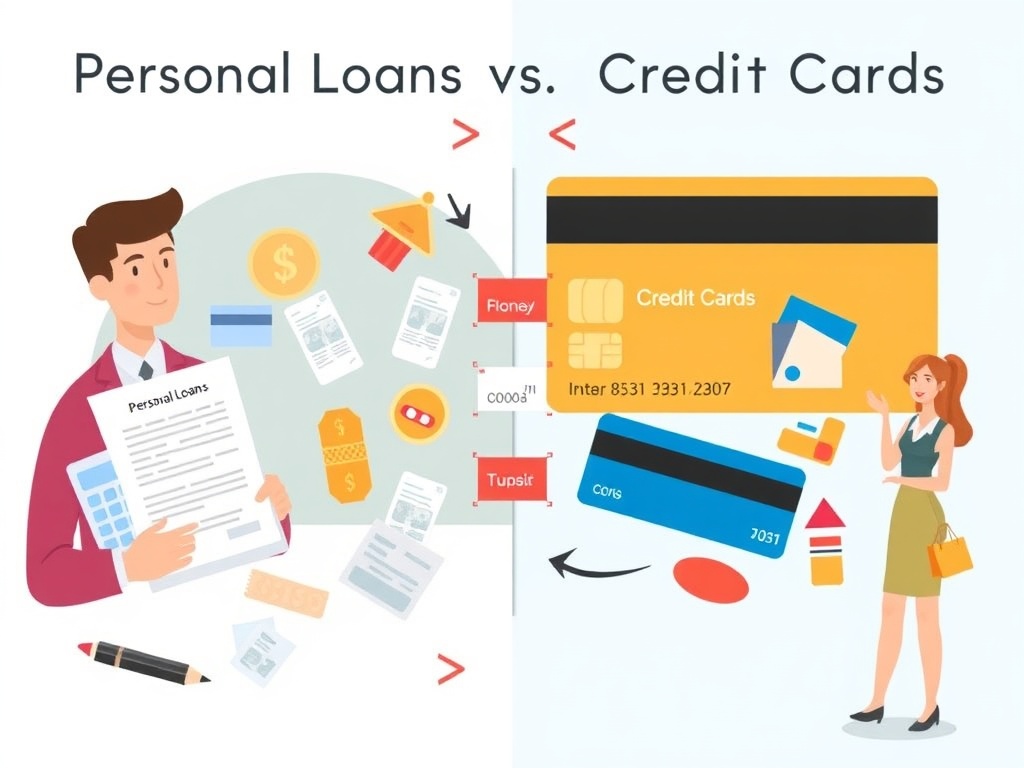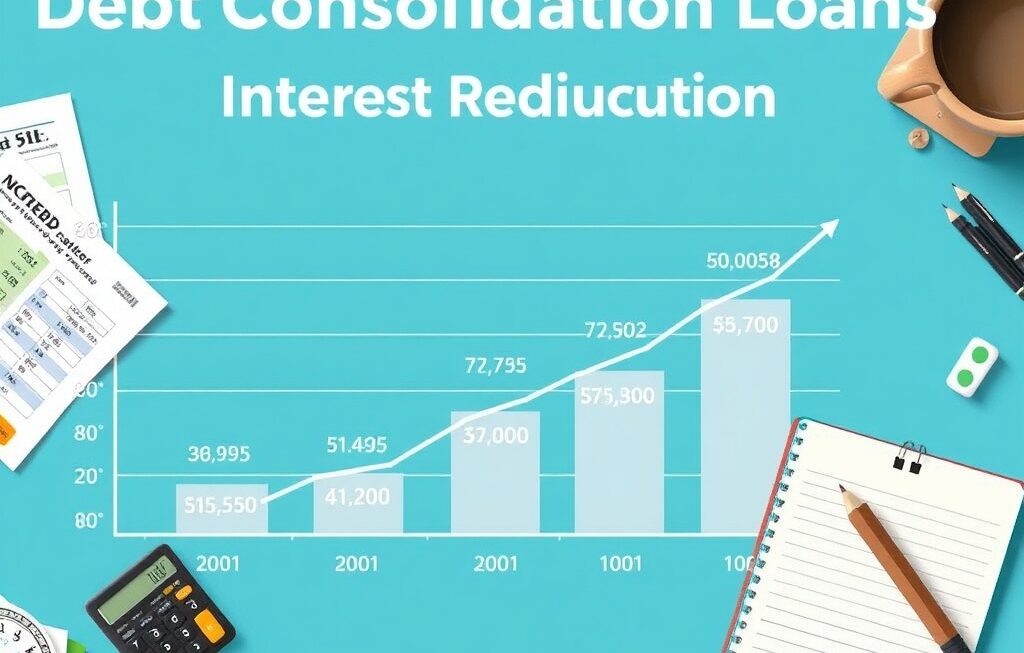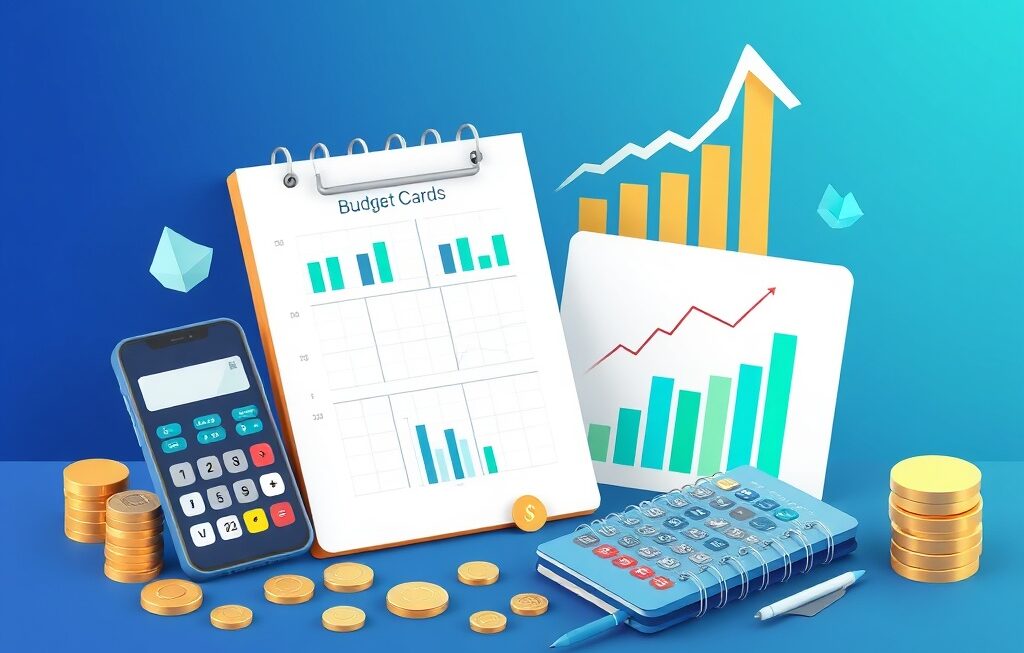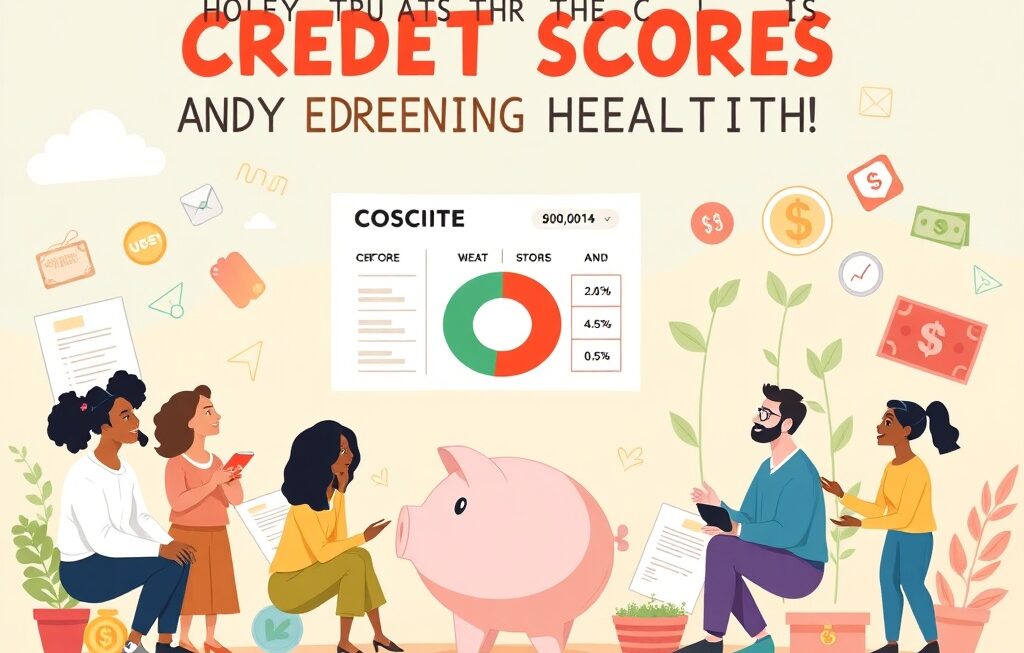Choosing the Right Option for Your Financial Needs
When it comes to borrowing money, two of the most common options are personal loans and credit cards. Both can help manage expenses, cover emergencies, or fund major purchases—but understanding their differences is crucial to choosing wisely.
In today’s economy, where financial flexibility and credit access play an essential role, knowing when to use personal loans vs credit cards can determine whether you build wealth or accumulate debt. Each tool offers distinct advantages and drawbacks depending on your financial goals, income stability, and spending habits.
This article explores how personal loans and credit cards work, compares their pros and cons, and provides guidance on when each is the better choice for your financial situation.
What Is a Personal Loan?
A personal loan is a fixed-term borrowing option that allows you to borrow a lump sum of money and repay it over time in equal installments, usually with a fixed interest rate.
Key Features:
- Fixed loan amount and repayment schedule
- Predictable monthly payments
- Usually lower interest rates than credit cards
- Typically requires good credit for approval
Personal loans are ideal for consolidating debt, financing major expenses, or covering one-time costs like home repairs, weddings, or medical bills.
What Is a Credit Card?
A credit card provides revolving credit, allowing you to borrow money repeatedly up to a certain limit. You can carry a balance month to month or pay it off in full.
Key Features:
- Flexible borrowing—use only what you need
- Variable interest rates
- Potential rewards (cashback, travel points, etc.)
- Minimum monthly payments required
Credit cards are convenient for daily purchases and short-term borrowing but can become expensive if balances are carried for long periods.
Personal Loans vs Credit Cards: Key Differences
While both involve borrowing, they function differently in structure, repayment, and cost.
| Feature | Personal Loan | Credit Card |
|---|---|---|
| Type of Credit | Installment loan | Revolving credit |
| Interest Rate | Usually fixed | Usually variable |
| Repayment Period | Fixed term (6–60 months) | Ongoing |
| Payment Amount | Fixed monthly payments | Minimum payments vary |
| Ideal For | Large, planned expenses | Everyday purchases or emergencies |
| Impact on Credit Score | Predictable if paid on time | Can fluctuate with utilization rate |
| Access to Funds | One-time lump sum | Continuous line of credit |
Understanding these distinctions helps you choose the right borrowing tool for specific needs.
Advantages of Personal Loans
Personal loans offer several benefits that make them suitable for structured financial planning.
1. Fixed Payments and Predictability
Because the interest rate and term are fixed, you know exactly how much you’ll pay each month, making budgeting easier.
2. Lower Interest Rates
For borrowers with strong credit, personal loans often offer significantly lower rates than credit cards.
3. Debt Consolidation Benefits
Many people use personal loans to consolidate multiple credit card balances into one manageable payment, saving on interest.
4. No Revolving Debt Temptation
Since personal loans are one-time borrowings, there’s no ongoing temptation to spend more after repayment begins.
5. Potential Credit Score Improvement
Making timely payments can boost your credit mix and demonstrate responsibility to lenders.
Advantages of Credit Cards
Credit cards, when used wisely, can be powerful financial tools.
1. Flexibility and Convenience
They’re perfect for small purchases, online payments, and emergencies where immediate access to funds is needed.
2. Rewards and Cashback
Many cards offer cashback, airline miles, or rewards points—valuable if you pay your balance monthly.
3. Build Credit History
Consistent, responsible use helps establish or improve your credit score.
4. Short-Term Interest-Free Periods
Most cards offer a grace period, allowing interest-free borrowing if you pay the full balance monthly.
5. Emergency Cushion
Access to credit provides peace of mind during unexpected situations.
Disadvantages of Personal Loans
Despite their benefits, personal loans also have limitations.
1. Less Flexibility
Once you borrow a set amount, you can’t easily access additional funds without applying for another loan.
2. Potential Fees
Some lenders charge origination or prepayment fees, which can increase overall costs.
3. Approval Challenges
Borrowers with low credit scores may struggle to qualify for favorable terms.
4. Debt Obligation Commitment
You must repay even if circumstances change, which can strain budgets during income fluctuations.
Disadvantages of Credit Cards
Credit cards, while convenient, can also pose significant financial risks if mismanaged.
1. High-Interest Rates
Interest rates can exceed 20% or more, especially if you carry balances.
2. Easy to Overspend
The revolving nature of credit cards encourages impulsive spending.
3. Credit Score Impact
High utilization rates or missed payments can quickly damage your credit score.
4. Minimum Payments Trap
Paying only the minimum amount prolongs debt and increases interest charges.
5. Hidden Fees
Late payment, balance transfer, or annual fees can add up over time.
When to Choose a Personal Loan
Personal loans are best suited for specific, large expenses or structured debt management.
Use a Personal Loan If You:
- Have a clear purpose for the funds (home renovation, debt consolidation)
- Need predictable payments with a fixed term
- Qualify for a lower interest rate than credit cards
- Want to pay off multiple debts efficiently
Personal loans work well when you value structure, discipline, and lower long-term costs.
When to Use a Credit Card
Credit cards are ideal for short-term borrowing and everyday spending, especially if managed carefully.
Use a Credit Card If You:
- Need flexibility and quick access to funds
- Can pay the balance in full each month
- Want to earn rewards or cashback
- Are building or maintaining credit history
- Have a small, short-term expense rather than a large project
The key is to avoid carrying high balances or relying on credit for long-term debt.
Combining Both Tools Strategically
For many, the best approach is using both personal loans and credit cards strategically.
Example Strategy:
- Use a personal loan to consolidate high-interest debt.
- Use a credit card for daily purchases and rewards, paid off monthly.
- Maintain low utilization and build strong payment history on both.
This balanced strategy optimizes flexibility and cost-efficiency.
How Credit Scores Are Affected
Both personal loans and credit cards impact your credit differently.
- Personal loans improve your credit mix and build long-term reliability.
- Credit cards influence your utilization ratio, which affects your score immediately.
- Late payments on either can significantly harm your credit standing.
Maintaining on-time payments and responsible usage ensures your borrowing choices support, rather than hurt, your credit health.

In Summary
Choosing between personal loans vs credit cards depends on your goals, habits, and financial discipline.
If you need structure, predictability, and lower interest for large expenses, a personal loan is the smarter choice. If flexibility, rewards, and short-term borrowing suit your needs, credit cards may be more beneficial.
In 2025’s dynamic financial landscape, the most effective strategy often combines both tools—using each where it performs best. By understanding the distinctions and maintaining responsible borrowing habits, you can achieve greater financial control, stability, and long-term success.



